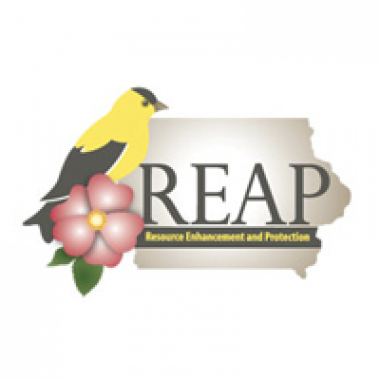Agriculture Teacher's Guide
Iowa truly is a beautiful place to live. The farmland that covers our state is a key reason for this beauty. Agriculture in Iowa can be related to crops, animals, or fruits and vegetables. Iowa farmers play an important role in feeding the world. While agriculture has been a part of our lives in Iowa for a long time, it has definitely changed a lot over time. Scientists, engineers and farmers have learned a lot about using technology to change the way that farming is done. What have they learned? How has farming changed? How is it the same? Come along, asking these questions, and you’ll have Fun Investigating New Discoveries in Iowa.
Iowa Core Standards
Social Studies
- SS.4.25 Analyze the impact of technological changes in Iowa, across time and place.
- SS.4.26 Explain how Iowa’s agriculture has changed over time.
Science
- 3.LS3.1: Analyze and interpret data to provide evidence that plants and animals have traits inherited from parents and that variation of these traits exists in a group of similar organisms.
- 5.ESS3.1: Obtain and combine information about ways individual communities use science ideas to protect the Earth’s resources and environment.
Discussion Questions
- When you think about farming “technology,” what comes to mind?
- How has technology changed over time? How has it remained the same?
- What new technologies do you think might be used for farming?
- Why might it be important for farmers to be careful about how they treat and protect the soil in their fields?
- What might happen if they were not careful about protecting the soil in their fields?
- Why might it be important for you to protect the Earth?
- How might you go about helping to protect the Earth?
- What are some similarities and differences between how plants and animals inherit traits compared to how people inherit traits?
- What sort of traits might be better for crops or livestock to inherit from their parents?
- What advantages and disadvantages are there to making sure the “best” traits are passed down from generation to generation of crops or livestock?
Suggested Activities
- Bulbs: Fall Planting for Spring Blooms | Kids Gardening: Agriculture requires patience and planning that is hard for many kids to imagine. In this activity, kids will learn about and practice the planning and preparation that happens months in advance to yield a beautiful flower in the Spring.
- River Runner: It is easy to think that what happens on your land stays on your land. This map, however, shows the path that water takes from any spot in the contiguous United States. This can help students to see just how their own conservation efforts can impact the world around them, both close and at a distance.
Additional Resources
Agriculture History
- Growing a Nation: The roots of agriculture run deep in Iowa, but farming has shaped the entire nation. Check out this link for an interactive timeline with events and resources that detail the role that agriculture has played in the history of America.
Conservation
- Starting Habits for Conservation Early | PBS LearningMedia: Conservation requires everyday people to take care of the Earth themselves. This collection from PBS LearningMedia teaches kids to build habits of conservation from an early age.
- Think Garden | PBS LearningMedia: From Kentucky Educational Television, this engaging video collection helps teach elementary students about the art and science of growing food, with an emphasis on biological and environmental concepts. It also addresses topics related to nutrition and economics.
Global Agriculture
- Agriculture Pioneer: Norman Borlaug | Iowa Pathways: With a growing world population, there was a need for a creative solution in order for world farms to produce enough food. Iowan Norman Borlaug worked to engineer a new type of wheat crop that was up for the challenge. Check out this resource from Iowa Pathways, an Iowa PBS resource, about 1970 Nobel Peace Prize recipient: Norman Borlaug.
- Google Earth | Agriculture: Different terrains, soils and climates around the world provide the ability for different crops and livestock to be grown and raised. This Google Earth tour takes you all around the world to see what farming looks like outside of Iowa.
Funding for FIND Iowa Provided By




